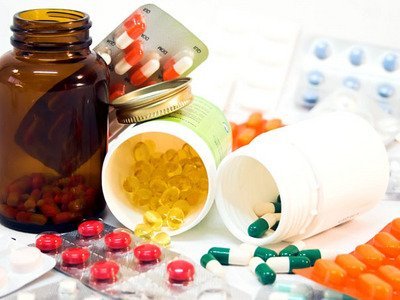- Home
- English
- BUCHAREST, (30.10.2011, 14:26)
- Radu Bostan ,
Online news - Breaking news and last minute updates - Last update: 10:46, 24 februarie 2025
mediafax
Romanian Pharma Industry Asks IMF To Push For Changes To Clawback System
Pharmaceutical companies have asked the International Monetary Fund to urge Romania's Government to reduce the clawback tax to zero for generic drugs, allow at least 210 days for its payment and no longer charge it on prices including VAT and distribution margin.
112 views
Romanian Pharma Industry Asks IMF To Push For Changes To Clawback System
This request was made in a meeting hosted by pharmaceutical company officials and members of the IMF, European Commission and World Bank delegation, people close to the matter told MEDIAFAX.
"Drug makers have complained that the clawback tax system is still nonfunctional despite the Government's recent modifications and have requested changes to the calculation method and payment procedure," the sources said.
The industry wants the clawback tax on generic drugs to be reduced to zero at least for a certain period, to encourage the sales of this category of cheap drugs, and ask that the tax not be charged to a sale price that includes VAT and distribution margin in addition to the production price.
The companies want the payment period extended to at least 210 days; the current system says the clawback tax must be paid no later than 20 days after the quarter in which the products were sold.
According to the sources, the IMF officials asked the industry representatives to present methods used in the calculation of such taxes in other states and assured them they would have a new talk with the Government in light of this new data.
The clawback system was introduced in the fall of 2009 and required all drug producers selling on the Romanian market to contribute quarterly to the public healthcare system 5%-11% of their revenue from the sale of products used by the national healthcare programs, included on the list of discounted/free medicine, or used in hospitals.
At the time, the companies complained they were being overtaxed, while the Government eventually admitted that the system was ineffective, having collected only 5% of the projected amount.
IMF mission chief Jeffrey Franks said, in August, that the Government should replace the clawback tax in the healthcare system with a new version and implement the proposal for co-payment as soon as possible.
In September, the authorities announced a new version of the tax, whereby drug producers would pay a quarterly tax according to drug consumption. The National Health Insurance House was to inform every distributor of the percentage owed to the budget, according to a certain formula.
Drug producers continued to blast the system, arguing that the new tax is charged to VAT collected on medicine sales, breaching the Fiscal Code. Drug maker association ARPIM said Romania's pharmaceutical industry could lose 842 million lei (EUR195 million), which means a 30% shrinking of the market, following the implementation of the new clawback tax.
The Association of Romanian Generic Drug Producers also said the clawback tax is unfair, inefficient and fails to solve the healthcare system's problems, while the American Chamber of Commerce in Romania says the mechanism inhibits the development of pharmaceutical companies.
On the other hand, the Government considers the system a way to improve earnings and direct more funds to the national healthcare programs.
(EUR1=RON4.315)
If you liked this story, please follow MEDIAFAX.RO on FACEBOOK »
The content of mediafax.ro is for your information only. Republishing or using this content is forbidden without express consent of MEDIAFAX. For this consent, please ask for it by mail at vanzari@mediafax.ro.




